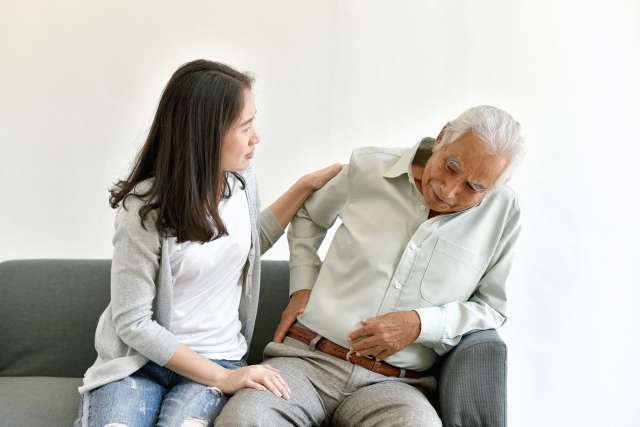You probably know that preventive action can reduce future health issues. That’s why we brush our teeth, wear sunblock and stretch before exercise. But what are you doing to protect your hips and keep them healthy?
Your hips support your body, keep you moving and protect your back and knees from injury, so it pays to keep them in good shape. But each year, more than 300,000 people in the United States fracture a hip. And one in four people will develop painful hip arthritis in their lifetime.
The good news is that you can improve your hip health by making a few simple changes — and it’s never too late (or too early) to start.
How to keep your hips healthy
Like all major joints, hips tend to deteriorate with age. As the with time and use, you can develop osteoarthritis — a degenerative joint disease also called “wear and tear” arthritis. Protecting your joints and keeping your hips strong may help you delay or even avoid severe hip issues.
Critical steps for hip health include:
1. Watch your weight
Your hips support a lot of your weight, so maintaining a healthy body mass index (BMI) puts less strain on them. Gaining 10 pounds can put of pressure on your hips, and shedding even a couple of pounds can relieve existing hip pain.
People who are overweight or have obesity are also more likely to need a hip replacement. And osteoarthritis often accompanies Type 2 diabetes. The high glucose levels caused by diabetes can cause inflammation and weaken the cartilage in your hips and other joints.
2. Eat for bone and joint health
Choosing the right foods can help keep your hips strong and your joints moving smoothly. Eating a variety of whole foods can help support bone health, prevent fractures and cushion your joints.
Make sure your diet contains:
- Anti-inflammatory foods: Dark leafy greens, healthy oils, berries, seeds and other anti-inflammatory foods can help reduce joint inflammation.
- Calcium: Dairy, edamame and tofu are high-calcium foods that provide the amount needed to strengthen bones.
- Vitamin D: Fatty fish, canned tuna and other foods high in vitamin D help your body absorb calcium.
- Vitamin C: Foods rich in vitamin C, such as oranges, strawberries, red peppers and broccoli, support the production of collagen — a vital protein for bones, tendons and connective tissues.
3. Engage in hip-friendly exercise
Regular exercise can help keep your hips strong, flexible and pain-free.
Some tips for getting the most out of your workouts — while avoiding injury — include:
- Choose low-impact exercises, such as swimming, that reduce pressure on your hips, especially as you age or if you have hip pain.
- Pick the proper footwear, ensuring it offers cushioning and support, especially if you engage in high-impact workouts.
- Strengthen your core and glute muscles to help stabilize your hips.
- Take the stairs, which strengthens the muscles responsible for hip movement.
Always check with your physician before starting any new exercise routine. If you feel any sharp, shooting pain during exercise — not just in your hips — stop immediately and don’t force the movement.
4. Stretch your hip flexors daily
Research shows that of adults in the United States sit for more than eight hours daily. All that sitting can cause tight hip flexors — the muscles at the front of your hips that help you lift your legs. Tight hip flexors can affect flexibility and movement, impact pelvic and spinal alignment and cause lower back pain.
To keep your hip flexors supple, stretch them out in the mornings and evenings. AARP provides a . If you work at a desk, try to get up and move throughout the day.
5. Don’t smoke
Smoking increases the risk of osteoporosis (weakening of bones) — smokers older than 65 are up to 40% more likely to break a hip than nonsmokers. Smoking harms bone health by:
- Decreasing calcium absorption
- Reducing blood supply to bones
- Slowing bone production
While research on vaping is limited, early studies show that people who vape can increase their risk of fractures by more than 45% compared to people who do not vape.
When to see a doctor for hip pain
Ignoring hip pain, even at a young age, can put you at higher risk for serious hip issues later. Contact a doctor if your hip pain:
- Doesn’t improve after a week of rest
- Interferes with normal activities or affects your sleep
- Worsens or returns repeatedly
Seek care immediately if you:
- Have severe hip pain after an injury
- Have a high fever in addition to your hip pain
- Notice that your hip is swollen, hot to the touch or has changed color — even if you don’t recall an injury



